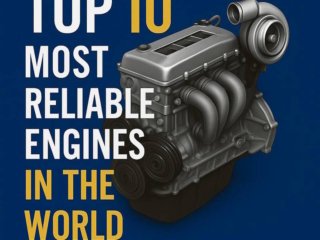The BMW B38 engine is a compact 1.5-liter inline 3-cylinder turbocharged petrol engine introduced in 2014 as part of BMW’s modular engine family. It’s used in a range of BMW and Mini models, including the BMW 1 Series, 2 Series, 3 Series, X1, and Mini Cooper. This engine is valued for its compact size, efficiency, and smooth performance. However, like any modern turbocharged engine, it comes with its own set of challenges.
Let’s take a deep dive into the common issues associated with the BMW B38 engine, along with some practical maintenance tips to help keep it running smoothly.
Common BMW B38 Engine Issues
Here are some of the most frequent problems reported by B38 engine owners:
1. Timing Chain Stretch and Failure
Symptoms: Rattling noise during cold starts, engine misfires, rough idle, or a check engine light.
Cause: Similar to its diesel sibling (B47), the B38 has faced timing chain stretch issues, which can lead to poor engine performance or catastrophic failure if the chain snaps.
Fix: BMW improved the timing chain components in later models, but earlier models may still be at risk. If you notice any symptoms, get the timing chain checked promptly. Typically, a replacement might be necessary around the 60,000 to 80,000-mile mark.
2. Coolant Thermostat and Water Pump Failure
Symptoms: Overheating engine, erratic temperature gauge readings, or a check engine light related to coolant temperature.
Cause: The electronic thermostat and water pump in the B38 can fail, leading to overheating issues. This is especially common after around 50,000-70,000 miles.
Fix: Regularly monitor the coolant temperature and check for leaks. If the thermostat or water pump shows signs of failure, replace them promptly to prevent engine overheating.
3. Oil Leaks (Valve Cover and Oil Pan)
Symptoms: Visible oil stains under the car, burning oil smell, or oil level warnings.
Cause: The valve cover gasket and oil pan gasket can degrade over time, leading to leaks. This is particularly common in engines that are frequently subjected to high temperatures.
Fix: Inspect the valve cover and oil pan for leaks during regular maintenance. Replacing gaskets early can prevent further damage.
4. Carbon Build-up on Intake Valves
Symptoms: Rough idle, hesitation during acceleration, reduced fuel economy, and misfires.
Cause: Due to direct fuel injection, the B38 engine can experience carbon buildup on intake valves over time. This can restrict airflow, impacting performance.
Fix: Periodic walnut blasting (every 40,000-60,000 miles) is recommended to clean the intake valves. Using high-quality fuel and additives can help reduce the buildup.
5. Fuel Injector Issues
Symptoms: Poor fuel economy, misfires, rough idle, or check engine light.
Cause: Fuel injectors can get clogged or fail over time, particularly if lower-quality fuel is used.
Fix: Cleaning or replacing fuel injectors can resolve the issue. Adding fuel injector cleaner periodically can help prolong their lifespan.
6. Turbocharger Issues
Symptoms: Loss of power, whining noise from the engine bay, excessive smoke from the exhaust, and turbo lag.
Cause: Turbochargers can wear out, especially if oil changes are neglected or if poor-quality oil is used. The B38’s small turbocharger works hard, which can lead to increased wear.
Fix: Regular oil changes with high-quality synthetic oil are crucial. If you notice early signs of turbo failure, addressing it early can prevent a complete failure.
Maintenance Tips for BMW B38 Owners
To maximize the lifespan of your B38 engine and avoid costly repairs, consider the following maintenance practices:
1. Frequent Oil Changes
Interval: Stick to shorter oil change intervals of 5,000-7,000 miles instead of the BMW-recommended 10,000-12,000 miles.
Oil Type: Always use high-quality, BMW-approved synthetic oil. This helps protect the timing chain and turbocharger from wear.
2. Check and Maintain Coolant Levels
Regularly inspect the coolant levels and top up if needed. Make sure you’re using BMW-approved coolant to avoid damage to the cooling system.
3. Monitor the Timing Chain
If you hear a rattling noise on cold starts, have the timing chain inspected as soon as possible. Early detection can prevent catastrophic engine failure.
4. Perform Walnut Blasting for Carbon Build-Up
Consider walnut blasting every 40,000-60,000 miles to prevent performance degradation due to carbon buildup on intake valves.
5. Use Quality Fuel and Additives
Always fill up with high-quality premium fuel. Using a fuel system cleaner every few thousand miles can help keep injectors clean and reduce carbon deposits.
6. Check for Recalls and Software Updates
BMW periodically releases software updates and recall campaigns to fix known issues. Check if your car is eligible for any free updates by contacting a dealer.
7. Pay Attention to Warning Signs
Address any check engine lights, rough idles, or unusual noises immediately. Catching problems early can save thousands in repairs.
8. Regularly Inspect for Leaks
Check for oil and coolant leaks under the car and around the engine. Leaks can worsen quickly, leading to more serious engine damage if not addressed.
Should You Buy a Car with a B38 Engine?
The BMW B38 engine is generally reliable if properly maintained. It offers great efficiency and performance for a small engine, especially with BMW’s advanced turbocharging and direct injection technology. However, it’s essential to be vigilant with maintenance to avoid potential problems.
Tips for Buyers:
Pre-Purchase Inspection (PPI): Always get a pre-purchase inspection from a reputable mechanic familiar with BMW engines.
Service History: Check for a comprehensive service history to ensure the previous owner performed regular maintenance.
Mileage Considerations: If you’re buying a higher-mileage car (over 60,000 miles), be prepared for potential issues like timing chain wear, carbon buildup, and cooling system component replacements.
By staying on top of preventive maintenance, the B38 can deliver years of efficient and enjoyable driving. However, neglecting common issues could lead to costly repairs, so careful ownership is crucial.



